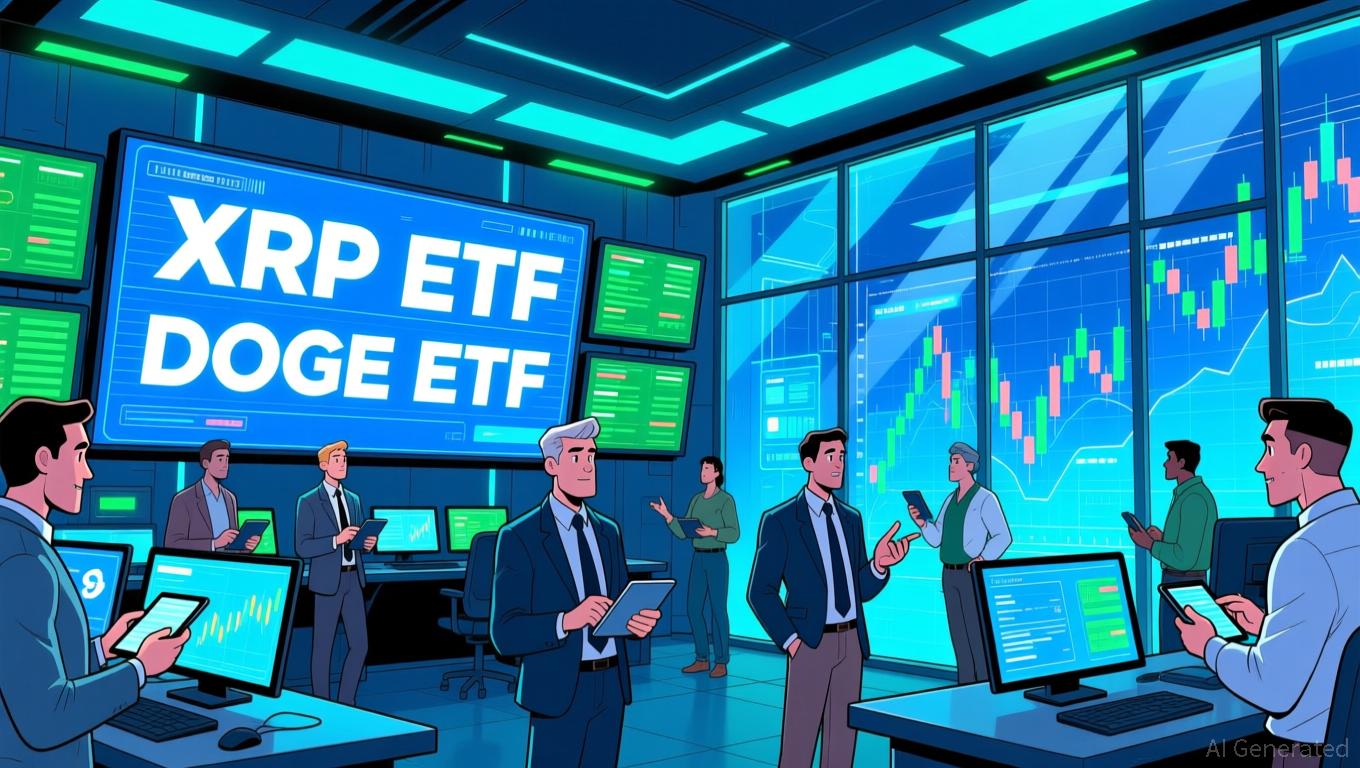The U.S. cryptocurrency sector is poised for substantial growth as several
XRP
and
Dogecoin
(DOGE) exchange-traded funds (ETFs) are set to debut, highlighting increasing institutional interest in alternative coins. The Securities and Exchange Commission (SEC) has paved the way for these offerings, with 21Shares, Franklin Templeton, and Grayscale all obtaining the necessary regulatory green light to list their ETFs on leading exchanges. These advancements coincide with heightened trading activity and renewed investor enthusiasm.
The initial breakthrough occurred when
21Shares' XRP ETF
received automatic SEC clearance after the agency issued updated guidance during the government shutdown. The ETF,
which will trade under the symbol "TOXR"
, is designed to follow the CME CF XRP-Dollar Reference Rate.
Coinbase Custody Trust Company, Anchorage Digital Bank, and BitGo Trust Company
will be responsible for safeguarding the ETF's assets, while
BNY Mellon will oversee administrative duties
. This approval came after
a 20-day review period
following 21Shares' Form 8-A filing, streamlining the process compared to previous crypto ETF submissions.
Franklin Templeton also attracted attention
with its Franklin XRP Trust, which
eliminated a delay provision from its S-1 filing
, potentially speeding up its listing under BZX Rule 14.11(e)(4). The trust,
which will hold XRP through Coinbase Custody
, could be a significant step for institutions seeking regulated exposure to XRP without the risks of direct custody.
Experts point out
that this setup avoids issues related to XRP Ledger forks or airdrops, making regulatory and operational processes more straightforward.
At the same time,
the Bitwise 10 Crypto Index ETF
has been authorized by the SEC for trading on NYSE Arca and features XRP as a major holding. The ETF allocates 85% of its assets to SEC-approved cryptocurrencies, with
XRP making up 4.97% of its holdings
. This follows
Canary Capital's XRP ETF (XRPC)
, which saw $250 million in inflows on its first day, demonstrating robust demand for XRP-related investment vehicles.
Grayscale, a leading crypto asset manager
, is preparing to introduce its own XRP and
DOGE
ETFs on the New York Stock Exchange (NYSE), converting their current private trusts into publicly traded funds.
These approvals, granted by NYSE Arca
, broaden Grayscale’s ETF offerings to now include
Bitcoin
,
Ethereum
,
Solana
, and additional altcoins. The new ETFs are
anticipated to boost liquidity and draw in traditional investors
to the digital asset space.
Dogecoin, the first
memecoin
, is also seeing increased momentum.
Grayscale's DOGE ETF
joins the product launched by REX Shares and Osprey Funds in September, making it the second Dogecoin ETF in the U.S. The cryptocurrency
jumped nearly 6% ahead of its expected debut
, as traders prepared for the first U.S. Dogecoin ETF (ticker: DOJE) set for September 12.
Large investors accumulating 280 million DOGE
and rising trading activity further highlight growing institutional involvement.
The SEC’s changing approach to crypto ETFs has played a crucial role.
New guidelines now permit companies to list ETFs
without direct approval if they comply with strict requirements, making the process more efficient. This policy shift enabled the swift authorization of XRP and DOGE ETFs,
showing the regulator’s gradual move
toward more comprehensive oversight of the crypto industry.
Market responses have varied. While
XRP ETF launches have pushed the token’s value
up by 5% in the last day,
Bitcoin ETF outflows
—which have reached $1 billion recently—have sparked worries about increased volatility.
Market analysts caution
that if outflows persist, Bitcoin could be pressured toward $82,000, though altcoin ETFs continue to drive sector growth.
The introduction of XRP and DOGE ETFs marks a turning point for the adoption of digital assets. By offering regulated ways to invest in altcoins, these funds could help bridge the gap between conventional finance and the crypto world, encouraging more institutional involvement and boosting confidence among retail investors.
